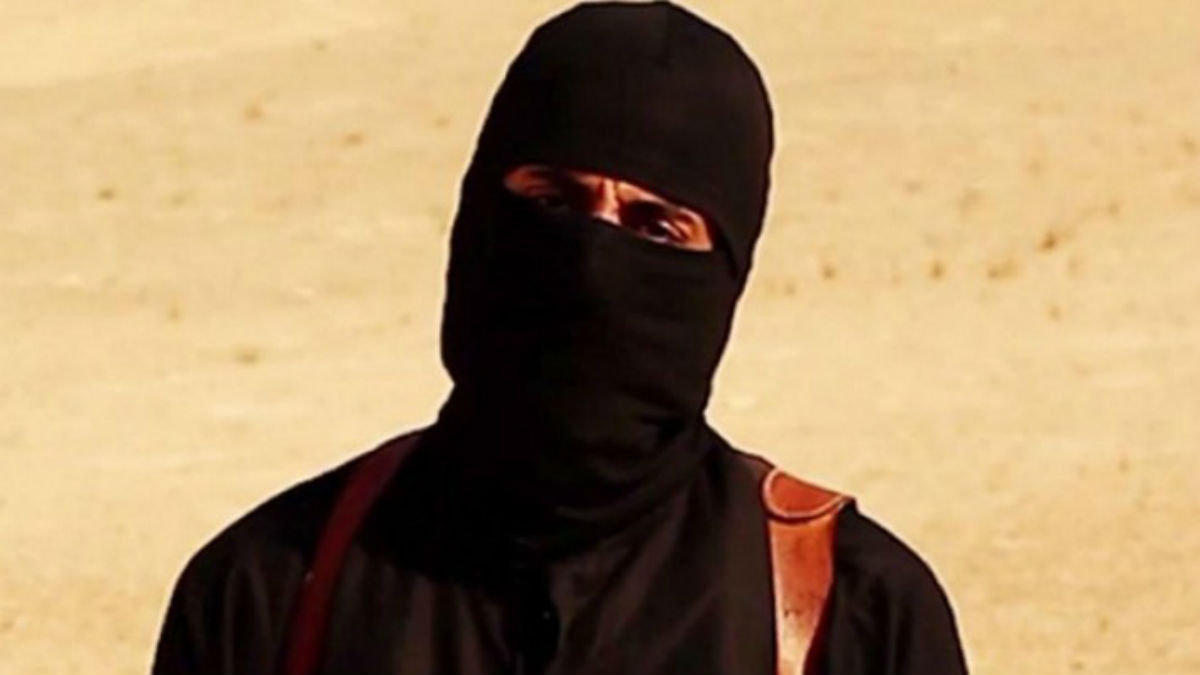Londoners identified as part of Islamic State's 'Beatles' gang
Alexanda Kotey and Aine Davis said to have been in terror cell responsible for beheading 27 hostages

A free daily email with the biggest news stories of the day – and the best features from TheWeek.com
You are now subscribed
Your newsletter sign-up was successful
Two Londoners have been identified as being members of the Islamic State gang nicknamed The Beatles – the group headed by Mohammed Emwazi, known as "Jihadi John".
Alexanda Kotey, 32, and Aine Davis, 31, are believed to have belonged to the terror cell responsible for beheading 27 hostages, according to ITV News and The Guardian.
Kotey, a Muslim convert, was reported to be a "key recruiter for the terror group" and helped radicalise young men in London before travelling to Syria. His whereabouts are unknown.
The Week
Escape your echo chamber. Get the facts behind the news, plus analysis from multiple perspectives.

Sign up for The Week's Free Newsletters
From our morning news briefing to a weekly Good News Newsletter, get the best of The Week delivered directly to your inbox.
From our morning news briefing to a weekly Good News Newsletter, get the best of The Week delivered directly to your inbox.
Davis, a former drug dealer who went to Syria in 2013, was detained in Turkey last November, on suspicion of planning terror attacks in Istanbul.
Former hostages said Emwazi (pictured above) was part of a team of British men who guarded Western captives at a prison in Idlib, Syria, three years ago. Their captives nicknamed them The Beatles because of their nationality, with Emwazi, who was killed in a drone strike in November, being named after John Lennon.
The three men were friends in west London and all attended the Al-Manaar mosque in Ladbroke Grove, says The Guardian.
They were known for their extremist views and connections to the "London Boys", the group responsible for the 7/7 attacks in central London.
A free daily email with the biggest news stories of the day – and the best features from TheWeek.com
Kotey's name was confirmed to the Washington Post by a US intelligence official and other people familiar with British nationals in Syria.
The Al-Manaar mosque said it had "always condemned the actions of these extremists and will continue to do so". Its director, Saleha Islam, said it held workshops and conferences to guide young people.
"Al-Manaar is a centre where we have up to 3,000 people attending every week; it is not a membership club and anyone can come and pray," she said. "The suggestion that the mosque has radicalised young men shows how ignorant people are of Islam and how mosques work."
The Home Office has refused to confirm or deny either man's identity.
-
 Local elections 2026: where are they and who is expected to win?
Local elections 2026: where are they and who is expected to win?The Explainer Labour is braced for heavy losses and U-turn on postponing some council elections hasn’t helped the party’s prospects
-
 6 of the world’s most accessible destinations
6 of the world’s most accessible destinationsThe Week Recommends Experience all of Berlin, Singapore and Sydney
-
 How the FCC’s ‘equal time’ rule works
How the FCC’s ‘equal time’ rule worksIn the Spotlight The law is at the heart of the Colbert-CBS conflict
-
 Epstein files topple law CEO, roil UK government
Epstein files topple law CEO, roil UK governmentSpeed Read Peter Mandelson, Britain’s former ambassador to the US, is caught up in the scandal
-
 Iran and US prepare to meet after skirmishes
Iran and US prepare to meet after skirmishesSpeed Read The incident comes amid heightened tensions in the Middle East
-
 Israel retrieves final hostage’s body from Gaza
Israel retrieves final hostage’s body from GazaSpeed Read The 24-year-old police officer was killed during the initial Hamas attack
-
 China’s Xi targets top general in growing purge
China’s Xi targets top general in growing purgeSpeed Read Zhang Youxia is being investigated over ‘grave violations’ of the law
-
 Panama and Canada are negotiating over a crucial copper mine
Panama and Canada are negotiating over a crucial copper mineIn the Spotlight Panama is set to make a final decision on the mine this summer
-
 Why Greenland’s natural resources are nearly impossible to mine
Why Greenland’s natural resources are nearly impossible to mineThe Explainer The country’s natural landscape makes the task extremely difficult
-
 Iran cuts internet as protests escalate
Iran cuts internet as protests escalateSpeed Reada Government buildings across the country have been set on fire
-
 US nabs ‘shadow’ tanker claimed by Russia
US nabs ‘shadow’ tanker claimed by RussiaSpeed Read The ship was one of two vessels seized by the US military